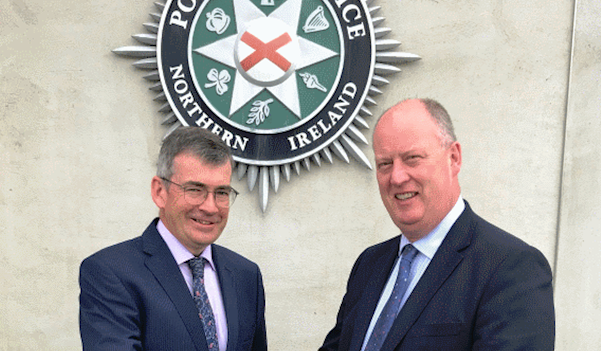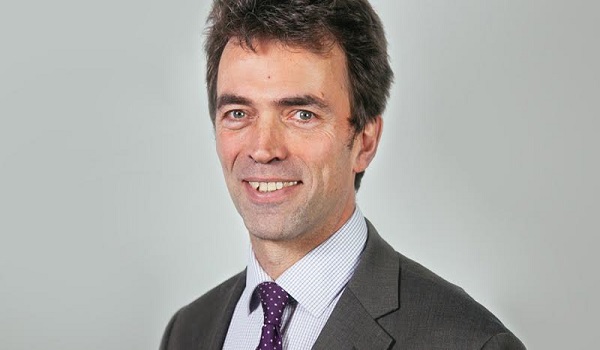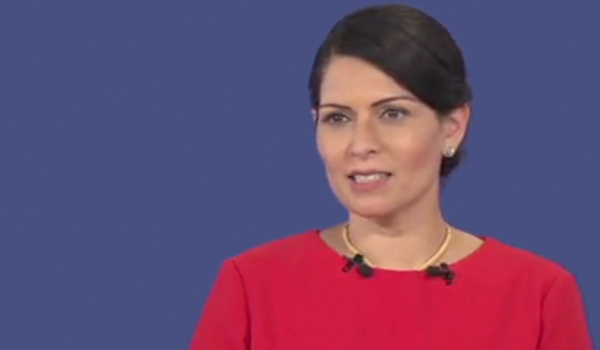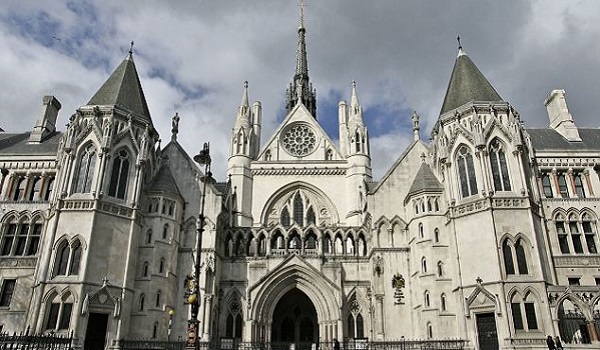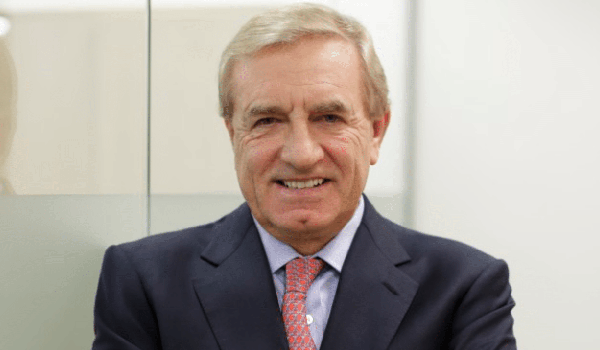PSNI temporary top team ‘vulnerable’ to poaching, chief constable warns after deputy’s exit shock
A chief constable has blamed a political impasse for leaving the service open to having his best staff cherry-picked by other forces.
George Hamilton warned MPs that the constitutional stalemate at Northern Ireland’s Stormont assembly had left a number of worrying consequences for the province’s £1 billion policing operation.
His comments to the Commons’ Northern Ireland Affairs (NIA) Committee came just 24 hours after the announcement that his deputy of the last four years – Drew Harris – is crossing the border to become the Republic of Ireland’s An Garda Síochána Commissioner.
The MPs were told by Mr Hamilton that the departure of the PSNI deputy chief constable would leave six of the nine senior command positions within the force held by temporarily-appointed officers.
While the chief constable can make temporary appointments, only the Northern Ireland Policing Board (NIPB) can bestow permanency on a position. And the NIPB needs Stormont to be functioning normally to continue that work, he said.
The ‘temporary’ nature of the PSNI top team coupled with Stormont’s constitutional absence over the last 18 months had created a “vulnerability” both for them and the PSNI, Mr Hamilton argued.
In a strong reaction, NIA committee chair Andrew Murrison said it looked as though the Police Service of Northern Ireland was reaching a position of “unsustainability” – while acting as a “staging post” for officers to advance their careers and improve the talent pool of other forces.
“It does not add up to an effective police force, does it?” the South West Wiltshire MP asked.
Other committee members also voiced their concerns with the DUP’s Ian Paisley describing the situation “a shambles” and Lady Hermon adding that the chief constable’s evidence was “very troubling”.
Mr Harris was chosen on Tuesday (June 26) to lead policing in the Republic following an “intensive” ten-month recruitment campaign run by the Public Appointments Service on behalf of the Irish Policing Authority.
It is the first time the new international selection process was used by the Irish government since its introduction in 2015 – a move that Police Federation for Northern Ireland chair Mark Lindsay said was both “ground breaking and historic”.
But Irish Taoiseach Leo Varadkar found himself having to defend the appointment of Mr Harris in the Dublin parliament.
Mr Varadkar accused Sinn Fein leader Mary Lou McDonald for “being almost in the space” of undermining the confidence of the new Garda Commissioner.
She said on Wednesday (June 27) that her party wanted to work constructively with Ireland’s new chief police officer but he would be “held to account”.
She re-iterated comments made by Stephen Travers, a survivor of the 1975 Miami Showband massacre, who described the appointment as “catastrophc” to the nationalist community in Northern Ireland.
“Mr Travers spoke of the Royal Ulster Constabulary collusion and the old RUC culture of political policing and cover-up,” she told the Dáil.
“He regards Mr Harris as part of that culture which has denied people the truth.”
Ms McDonald added that Mr Harris “must earn the confidence and trust of the public” and called for him to “demonstrate he in no way subscribes” to the “toxic” and “vindictive” policing culture of the disbanded RUC.
Irish Premier Varadkar said he was “a little bit disappointed” by Ms McDonald’s position, arguing that the appointment was “very much” in line with policing reforms that the government introduced and Mr Harris was “someone who can bring about better policing in Ireland, policing our communities better, and greater accountability on behalf of the Gardai”.
Mr Harris, who has 34 years’ policing experience including a dozen at senior leadership level, will start his new five-year job in September, taking over from Acting Commissioner Dónall Ó Cualáin.
On making the appointment, Irish Minister for Justice and Equality Charlie Flanagan said Mr Harris was joining at a time of major reform and investment which was set to “redefine” An Garda Síochána as an organisation.
He added: “As we approach the centenary of the establishment of An Garda Síochána, the organisation is on the cusp of significant change.
“I am confident that Drew Harris has the necessary ability and vital policing, security and change management experience required.”
Mr Lindsay said the PSNI deputy chief constable’s move to An Garda Síochána would bring an “invaluable” perspective to the Brexit dialogue in policing terms.


